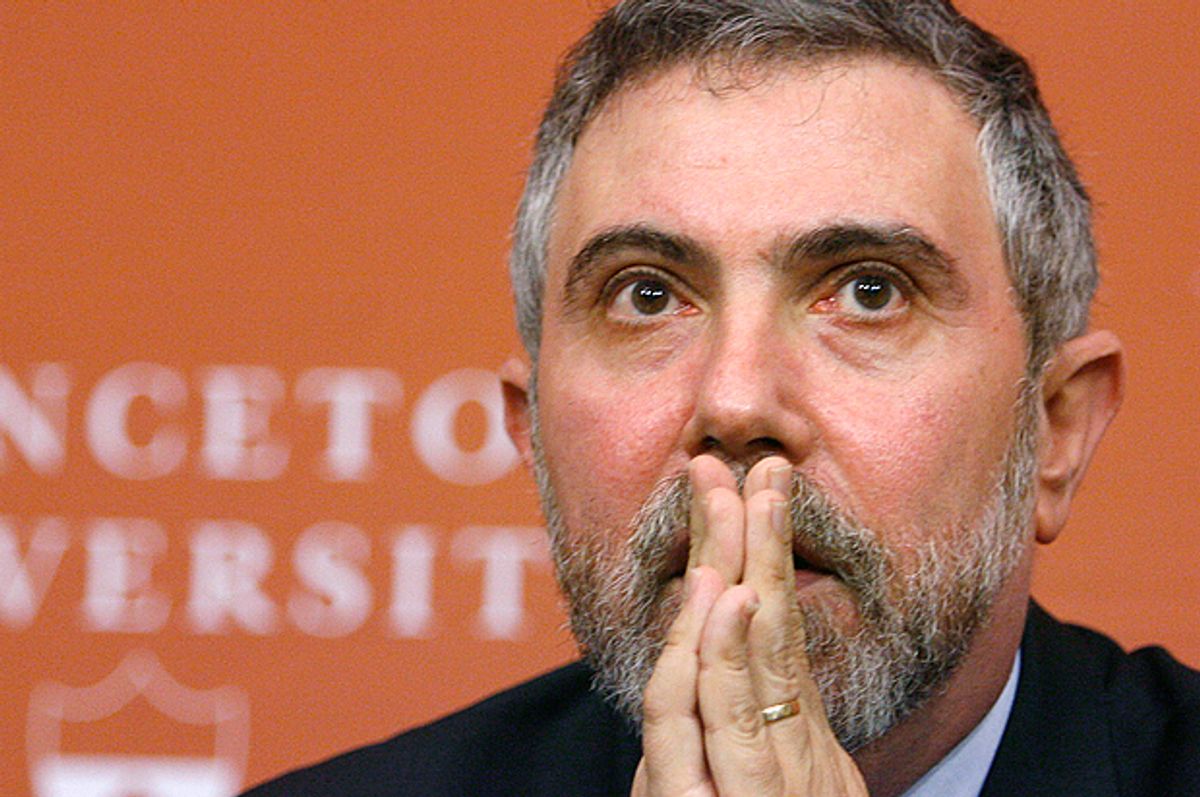On Monday, New York Times columnist Paul Krugman discussed the "shameful" attempt by the European Union to impose further austerity measures on Greece, and praised the Greek people for defying predictions and voting in their own best interest over the weekend.
He argued that had the campaign by the Troika -- the institutions that represented Greece's creditors -- been successful in their campaign to force Greece to accept austerity measures which have been proven not to work, it "would have set a terrible precedent...even if the creditors were making sense."
Which, of course, they weren't, because "[t]he truth is that Europe’s self-styled technocrats are like medieval doctors who insisted on bleeding their patients -- and when their treatment made the patients sicker, demanded even more bleeding."
Krugman confessed, however, that no one knows what the actual solution to the problem of Greek debt should be, or whether it should even attempt to remain in the euro.
The most immediate question involves Greek banks. In advance of the referendum, the European Central Bank cut off their access to additional funds, helping to precipitate panic and force the government to impose a bank holiday and capital controls. The central bank now faces an awkward choice: if it resumes normal financing it will as much as admit that the previous freeze was political, but if it doesn’t it will effectively force Greece into introducing a new currency.
Specifically, if the money doesn’t start flowing from Frankfurt (the headquarters of the central bank), Greece will have no choice but to start paying wages and pensions with i.o.u.s, which will de facto be a parallel currency — and which might soon turn into the new drachma.
Suppose, on the other hand, that the central bank does resume normal lending, and the banking crisis eases. That still leaves the question of how to restore economic growth.
In the failed negotiations that led up to Sunday’s referendum, the central sticking point was Greece’s demand for permanent debt relief, to remove the cloud hanging over its economy. The troika — the institutions representing creditor interests — refused, even though we now know that one member of the troika, the International Monetary Fund, had concluded independently that Greece’s debt cannot be paid. But will they reconsider now that the attempt to drive the governing leftist coalition from office has failed?



Shares